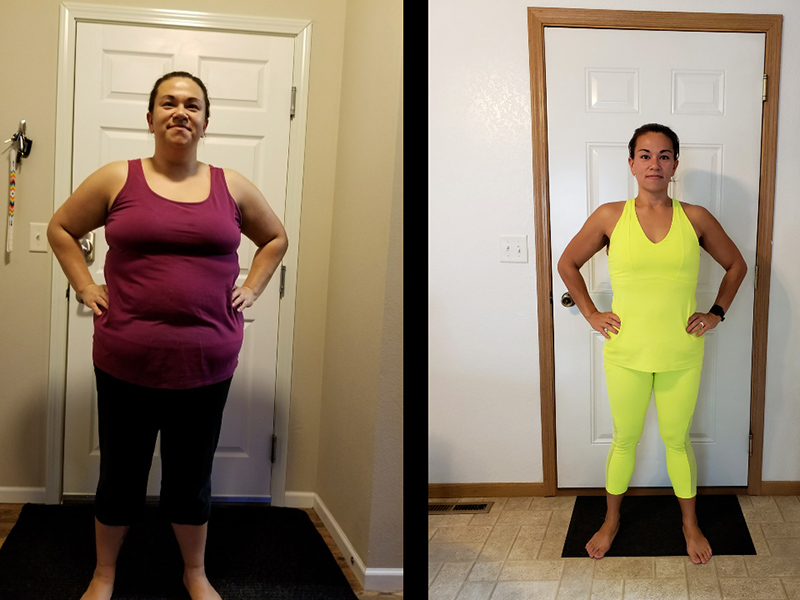“I never ever thought that I could feel as healthy or as good as I do now. I mean, I’ve been running 5Ks and 10Ks for the last two years and never in my life did I think I’d be able to do that.”
Cassandra Altringer of Killdeer, North Dakota, didn’t always feel this good. Just a few short years ago, she weighed 302 lbs. Then she decided to make some changes.
“I wanted to lose weight because I just felt crappy. I couldn’t get below 228 (lbs.) on my own. For some reason I just couldn’t do it,” Altringer said. “I had already switched my lifestyle. So I was measuring foods, I was eating healthier, I was exercising every day. When I had the surgery, actually now, I work out half the amount of time.”
On May 13, 2019, Altringer had weight loss surgery performed at Sanford Health in Bismarck.
Weight loss success with surgery: Find an information session near you
“This is Cassie’s procedure: a sleeve gastrectomy, once again, done laparoscopically, so with small incisions and cameras,” said Dr. Bree Dewing, a weight loss surgeon at Sanford Health in Bismarck. “Basically what we do is separate a large portion of the stomach, which is removed, creating this narrow gastric pouch that helps patients feel full faster, and less hungry during the day.”
Not a quick fix
Two years after her procedure, and the woman who once weighed over 300 lbs. now weighs almost half that – 152 lbs. to be exact. And while the surgery helped lower her weight, she wants everyone to know it was not a cosmetic choice.
“I think people don’t understand that this is not a quick fix,” Altringer said. “What I’ve noticed in the last year, especially, is that if I’m not eating or on the ball like I usually am, or should be, my weight will go up within like a week or two.”
That’s why Dr. Dewing says weight loss surgery is not a “cure” for obesity, but a tool to be used by those who have trouble getting below a BMI of 40, or a BMI of 35 with other illnesses, yet still adhere to a healthy diet and exercise regimen.
“Cassie is definitely a superstar patient,” said Dr. Dewing. “This is just a classic example of when patients use the tool appropriately, how they can have really excellent results.”
The journey continues
The first year after weight loss surgery is referred to as the golden period where it’s especially important for patients to develop healthy habits. That’s why Sanford offers support long after the procedure is complete, just like Dr. Dewing does with Cassandra.
“I still ask her questions about, you know, my carbohydrates, how many calories I eat, is this okay? Is this okay for me to consume?” Altringer said. “So they’ve really helped guide me as far as education goes and helping me stay on the ball, especially nutrition-wise.”
Still, weight loss surgery isn’t for everyone. Even Altringer says she waited until she felt she had enough information and was truly committed to change.
“When you do it for the wrong reasons, you’re not going to sustain that healthy lifestyle, you know? So I’d say, especially to anyone that’s considering it, it has to be something you’re doing for you to feel better and be healthier. And if it’s not, then maybe it’s something you need to revisit. Because if I would’ve done the surgery two or three years before I did, I truly don’t think I would have done well, and I do not think that emotionally I was in a spot in my life that I would have done as well as I’m still doing now.”
Learn more
- Research group studies eating disorders, weight loss surgery
- How weight loss surgery improves overall health
- Couple achieves significant weight loss without surgery
…
Posted In Bismarck, Healthy Living, Weight Loss

